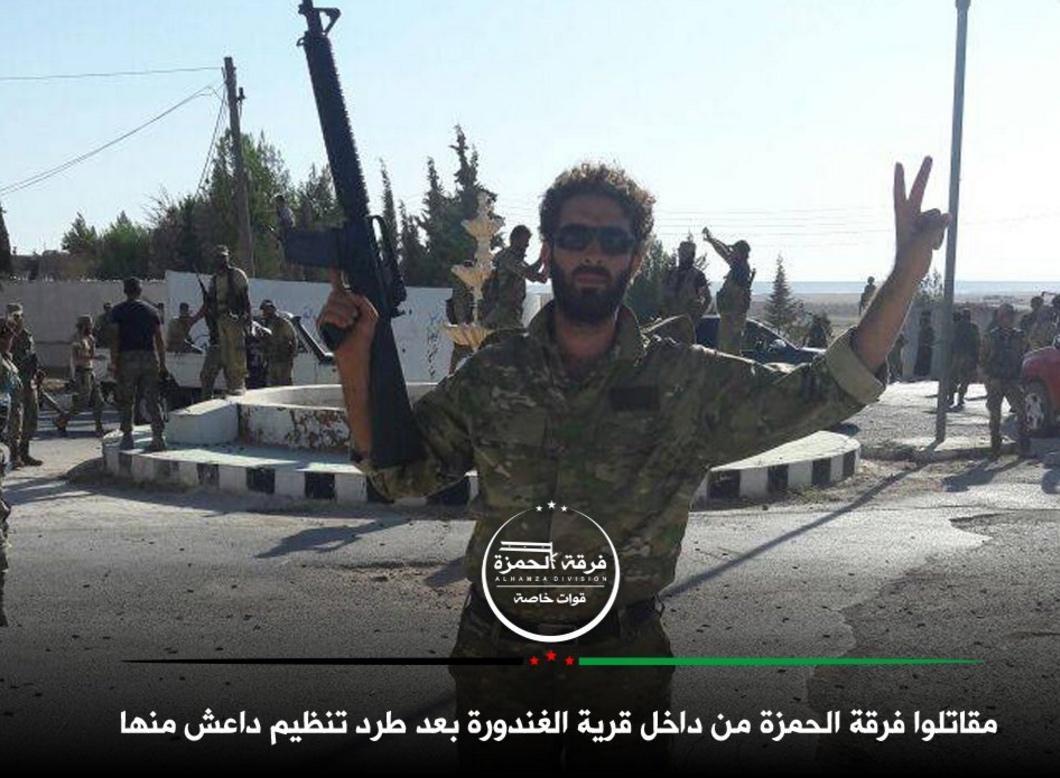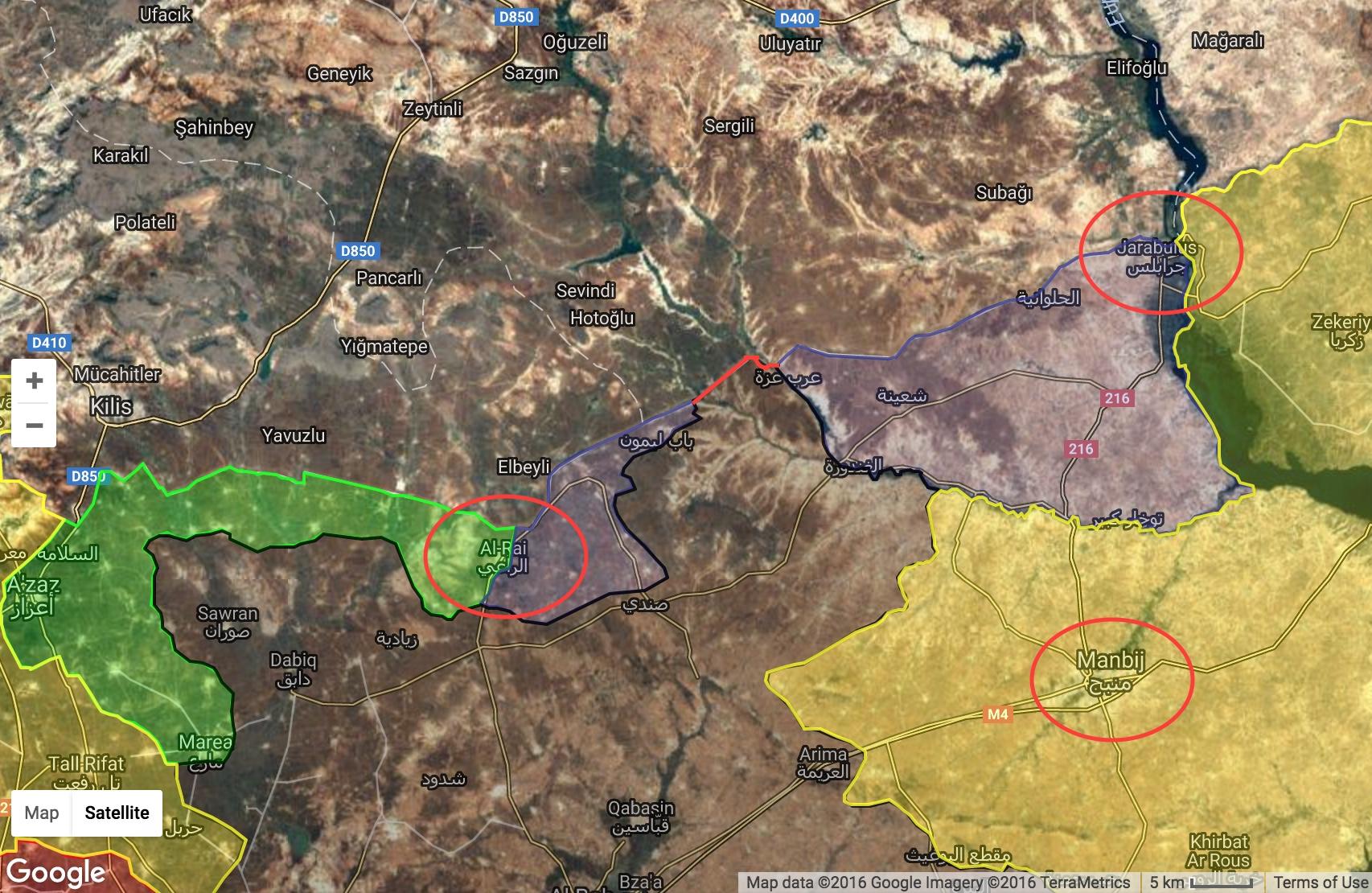Isis 'cut off from rest of world' as rebels expel Islamists from Turkish border
'Everything is finished. There is no more Isis at the border'

Your support helps us to tell the story
From reproductive rights to climate change to Big Tech, The Independent is on the ground when the story is developing. Whether it's investigating the financials of Elon Musk's pro-Trump PAC or producing our latest documentary, 'The A Word', which shines a light on the American women fighting for reproductive rights, we know how important it is to parse out the facts from the messaging.
At such a critical moment in US history, we need reporters on the ground. Your donation allows us to keep sending journalists to speak to both sides of the story.
The Independent is trusted by Americans across the entire political spectrum. And unlike many other quality news outlets, we choose not to lock Americans out of our reporting and analysis with paywalls. We believe quality journalism should be available to everyone, paid for by those who can afford it.
Your support makes all the difference.Isis has lost control of its last territories on the border with Turkey, monitoring groups say, in a major blow to the group's ability to receive foreign fighters from the rest of the world.
Speaking to The Independent, a spokesperson for the Syrian Observatory for Human Rights said Isis had conceded control of its last two villages on the border, retreating to positions around 7-8km to the south.
It completes an operation to take control of the area by the rebel Free Syrian Army, backed by a Turkish ground offensive that began at the town of Jarablus on 24 August.
On Saturday, more Turkish tanks rolled over the border into Al-Rai, a town some 55km (34 miles) west of Jarablus, and over the weekend a pincer Turkish-rebel offensive has been closing the gap between the two.
Rami Abdulrahman, from the UK-based Observatory, said: "Everything is finished. There is no more Isis at the border."
Turkey's state-run Anadolu news agency also reported that the advance had “removed terror organization Daesh's [Isis] physical contact with the Turkish border in northern Syria."
After three years in control of portions of the border, Isis's grasp over the last villages dissolved in a matter of hours.
Three hours before the Turkish-rebel advance was complete, Isis was still reported as holding four villages. Two hours before, the Observatory had told The Independent: "There is only 4-6km still under Isis control at the border, just two villages and a farm, and after that they [FSA] will control the whole area.
"It will be a few hours, and then Isis will be cut off from the rest of the world."

Asked how the Turkish-led offensive had been able to secure a stretch of 55km in just two days, mopping up a dozen or more towns and villages, Mr Abdulrahman said: "Isis have stopped fighting there, they are moving out.
"We said after they lost Manbij, Isis would start to lose everywhere. Sure enough, when the Turkish forces went into Jarablus that was not really fighting, there was no one killed from either side."
For Isis, it seems the link to Turkey became too hard to maintain. "Isis is losing the border because they had operations againt the Free Syrian Army, and also operations against the Kurdish, and against the regime," Mr Abdulrahman said, suggesting Isis will redeploy their fighters elsewhere.
Turkey launched its operation in Syria, which it has named Euphrates Shield, with the dual purpose of driving out Isis and stopping the advance of the Kurdish YPG militia, fearing its growing control of northern Syria as Isis's power waned.
Speaking at the G20 gathering of world leaders in China, President Tayyip Erdogan made no distinction between Turkey's goals against Isis and the YPG, which controls the rest of the Syrian border area. He told reporters following a meeting with Barack Obama: "It is our wish that a terror corridor not be formed across our southern border."
Indeed, with Isis almost pushed back from the border, Turkey appears already to have turned its full attention to the US-backed YPG.
Prime Minister Binali Yildirim said in a speech on Sunday in the southeastern city of Diyarbakir: “We will never allow the formation of an artificial state in the north of Syria,” referring to the Kurdish desire for autonomy in the region.
"We are there to protect our borders, ensure the safety of our citizens' lives and property, and to protect the territorial integrity of Syria."
Join our commenting forum
Join thought-provoking conversations, follow other Independent readers and see their replies
Comments